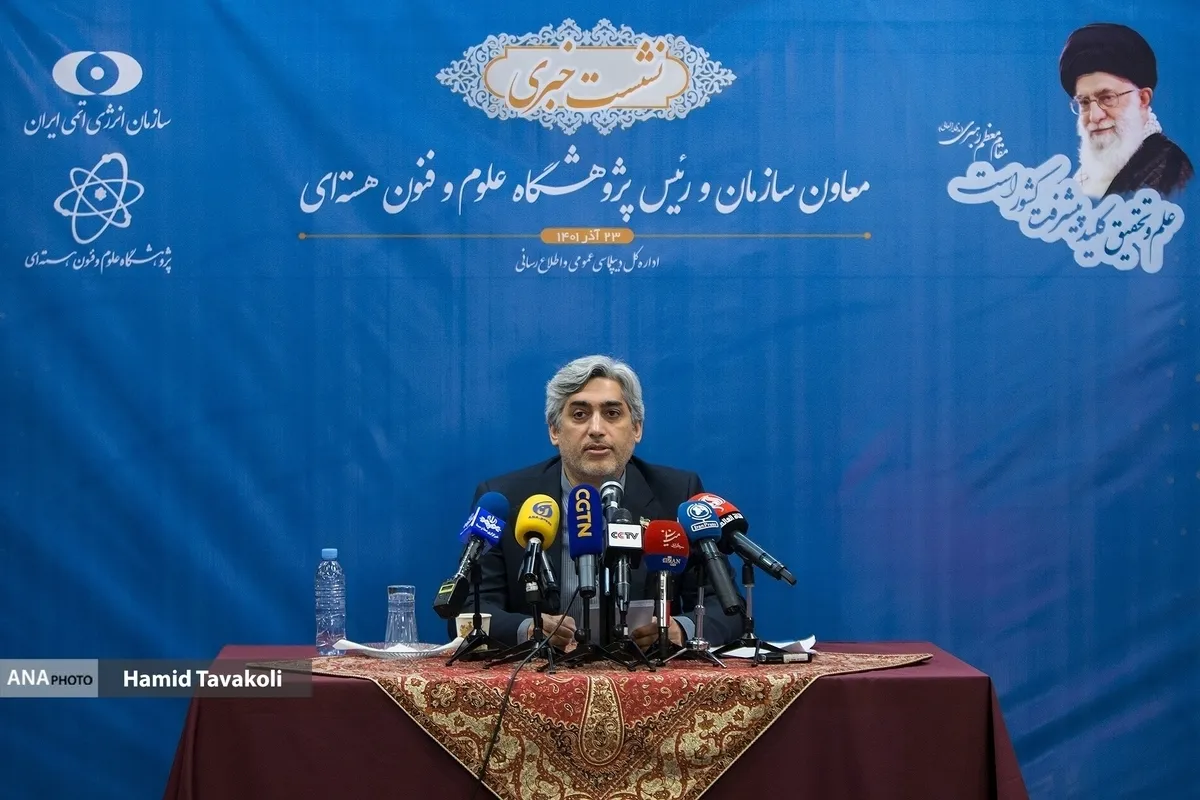Feqhi "Iranian Radiopharmaceuticals innovator" Assassinated in Israel's Airstrikes

The prominent scientist developed materials that are mainly used for the diagnosis and treatment of cancer. By combining nuclear physics and artificial intelligence, he transformed fundamental knowledge into practical technology.
Dr. Seyed Amir Hossein Feqhi was born in 1978 in Shiraz and spent his primary and secondary education in the same city. In 1990, he received his bachelor's degree in nuclear physics from Urmia University, then in 2003, he received his master's degree and in 2008, his doctorate in nuclear engineering (energy orientation) from Amirkabir University of Technology.
In 2007, he obtained a study opportunity at the CERN Research Center in Switzerland and returned to Iran with world-class knowledge. From 2002 to 2004, he became a member of the incident analysis team in the FMP project of the AEOI. He was the head of the Nuclear Science and Technology Research Institute for a while.
Since 2008, he has been teaching as a faculty member of the Faculty of Nuclear Engineering at Shahid Beheshti University and was promoted to professor in 2016.
He worked as the director of the Radiation Application Group at Shahid Beheshti University and the plenipotentiary representative of Shahid Beheshti University in the Permanent Committee on Space Radiation of the Iranian Space Organization.
During his years of scientific activity, he also worked in numerous management positions, including the director of faculty affairs, secretary of the executive board of recruitment, and secretary of the special audit board of Shahid Beheshti University.
Dr. Seyed Amir Hossein Feqhi was a full professor of nuclear physics and a prominent scientist in this field. He worked in the field of radiopharmaceuticals, which are mainly used to treat cancer.
A bridge between science and industry
Dr. Feqhi was not just a theoretical scientist. With a practical and innovative approach, he always tried to transform fundamental nuclear knowledge into applied technologies. One of the important areas in which he was active was the development of radiopharmaceuticals, substances used in the diagnosis and treatment of diseases including cancer.
Also, he was significantly active in designing industrial devices like radiation density meters (patented invention), industrial radiography systems, and non-destructive diagnostics in the oil and gas industries. This approach made him one of the pioneers of indigenization of sensitive and strategic technologies in Iran.
Scientific interests and unique expertise
Dr. Feqhi was a multidimensional scientist who succeeded in developing applied technologies by deeply integrating nuclear physics, electronic engineering, artificial intelligence, and space engineering.
Radiation effects on electronic components
One of his main research areas was the investigation of damage caused by neutron, proton, and gamma radiation on electronic components. He studied the leakage current variations in silicon diodes, the crystal dynamics loss of semiconductors, and the effects of neutron radiation on the electrical constants of diodes. This research played a key role in designing radiation-resistant electronic systems, specially in satellites and space missions.
Protection of electronic systems in space
Dr. Feqhi worked extensively in the field of protecting electronic components exposed to space radiation, including the following:
• Use of different materials for shielding in LEO and GEO orbits
• Comparison of shielding materials such as aluminum and polyethylene
• Investigation of the effects of solar radiation on semiconductor components
These topics reflect his special interest in space science and electronic security in radioactive environments.
Modeling and design of particle accelerators
In addition to research related to radiation effects, Dr. Fiqhi has also played a role in the design and simulation of particle accelerators. He has participated in the design of the IMSIC-250 cyclotron magnet and macro measurements on the electron gun. These activities demonstrate his interest in the physics of accelerators and their applications in medicine, industry, and research.
Non-destructive diagnosis using radiation
Another notable area of his scientific activity is the use of gamma and X-ray radiation in non-destructive diagnosis. This has been applied in applications such as:
• Two-phase and multiphase flowmetry (oil, gas, water)
• Identification of flow regimes
• Calculation of porosity and volume fraction of phases
• Use of artificial intelligence and neural networks to improve the accuracy of measurements
. This approach demonstrates his ability to combine nuclear knowledge with artificial intelligence and industrial process engineering.
Dosimetry and radiation detection
Dr. Feqhi has also worked in the field of calibration of radiation detectors. He has contributed to the temperature calibration of the NaI(Tl) detector and the investigation of the thermoluminescence properties of the ZrO₂:Ti nanophosphor. These works are particularly useful in medical diagnostics, industry, and the environment.
Transforming fundamental knowledge into practical technology
Dr. Feqhi’s main concern was to transform nuclear knowledge into practical technologies and strengthen sensitive industries. Numerous examples of this approach can be seen in his articles, including the use of neural networks in fluid phase detection, optimization of spatial shielding, and analysis of radiation damage in electronic elements.
Dr. Feqhi, was assassinated on June 13, 2025, during an Israeli airstrike on Iran.
4155/v





















